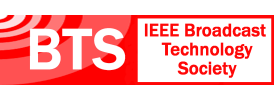- About
- Members
- Sponsors
- Subcommittees
- Technical Documents
- News
- Events
- Spotlight ATSC 3.0
- Contact Us
- Member Login
- Member Meetings
- Advanced Search
Search Site
Member Links
- About
- Members
- Sponsors
- Subcommittees
- Technical Documents
- News
- Events
- Spotlight ATSC 3.0
- Contact Us
- Member Login
- Member Meetings
- Advanced Search
Board Chairman’s Memo: Momentum at Home, Impact Abroad
Posted on May 27, 2025 in ATSC News

ATSC is wrapping up a very busy spring filled with continued momentum in the USA and international progress. I’m honored to pen this month’s memo, filling in for ATSC President Madeleine Noland, who returned from a successful trip to India, representing ATSC and advancing our international interests. That engagement is critical as ATSC standards continue to serve not just North America but also emerging global markets looking for scalable, mobile-first broadcast solutions.
The Richer Medal
This week ATSC is very pleased to announce that Clarence Hau, NBCUniversal Senior Vice President of Standards, Policy, and Advanced Engineering, is being honored as the 2025 recipient of the Mark Richer Industry Leadership Medal. Named for my dear friend, ATSC’s longtime President Mark Richer, the Medal is our organization’s highest honor. It recognizes leadership in advancing ATSC’s mission and embodying the vision, tenacity, and commitment that defined Mark’s legacy. Clarence was unanimously selected by the Board for this honor in recognition of his pivotal role in advancing the capabilities of ATSC 3.0. We look forward to officially bestowing this honor at the upcoming NextGen Broadcast Conference in Washington.
Registration for ATSC’s NextGen Broadcast Conference on June 12–13 in Washington, D.C. is closing June 3, and we hope to have a full house to experience the terrific program and exhibitor showcases, with plenty of networking time. Annual Sponsors can use their coupon codes to register with complimentary access.
As second quarter of 2025 progresses, ATSC members remain steadfast in advancing the standards work that strengthens our ecosystem and propels innovation forward. You can read about the latest technical progress in this month’s Standards Column, where momentum continues across various Specialist Groups and Implementation Teams.
ATSC 3.0 & BPS
In late April, ATSC submitted comments to the Federal Communications Commission’s Notice of Inquiry (Docket No. 24-89) on complementary positioning, navigation, and timing (PNT) technologies. We are encouraged by the Commission’s forward-looking exploration of resilient systems that can supplement GPS and reinforce national infrastructure.
ATSC 3.0 serves as the foundation for the emerging Broadcast Positioning System (BPS) – a terrestrial approach to wide-area PNT services that leverages the broadcast infrastructure already reaching most U.S. households. The standards’ inherent strengths – robust signal propagation, precise synchronization, and data extensibility – make it uniquely suited for complementing satellite-based systems, especially in hard-to-reach or GPS-denied environments.
With approximately 76% of U.S. households now covered by NEXTGENTV broadcasts across 78 markets, the broadcast backbone for BPS is quickly materializing. ATSC stands ready to collaborate with the Commission and industry partners to refine standards and enable PNT applications that further demonstrate the multi-dimensional value of ATSC 3.0.
International Collaboration & Insight
Earlier this month, after reflecting on her recent trip to WAVES in Mumbai, India, Madeleine told the ATSC Board of Directors about the valuable insight into India’s broadcast evolution:
- Feature phones remain dominant and present a significant opportunity for Direct-to-Mobile (D2M) services via ATSC 3.0.
- India’s ambitions to be a global leader in media tech and entertainment are driving its standards agenda.
- The diversity of standards development organizations (SDOs) across different access networks offers an opportunity for focused innovation: IEEE for Wi-Fi, 3GPP for unicast, and ATSC for broadcast/multicast.
- Each technology can evolve independently, enabling quicker and more specialized advancements.
At ATSC, “busy” is an understatement, and we are incredibly grateful for the participation and enthusiasm of our members, sponsors, and partners around the world. As new opportunities continue to emerge – especially on the international stage – I know that ATSC is well-positioned to meet them head-on.
Together, we are ensuring that the ATSC 3.0 standards remain the backbone of next-generation broadcasting and a catalyst for innovation.
John I. Taylor
Chairman, Board of Directors
ATSC – The Broadcast Standards Association
Posted in ATSC News
News Categories
News Archives
Subscribe
Subscribe to The Standard, our monthly newsletter. Learn More
Join ATSC
ATSC is a membership organization with both voting and observer categories. Voting members include corporations, nonprofit organizations, and government entities, and they participate actively in the work of ATSC. Observers are individuals or entities not eligible to be a voting member.
Subscribe to our Newsletter
Subscribe to The Standard, our monthly newsletter, to stay up-to-date with ATSC news and events around the world.
Site Links
Contact Us
ATSC
1300 I Street NW, Suite 400E
Washington, DC 20005 USA
Do you have questions about ATSC?
About ATSC
ATSC, the Broadcast Standards Association, is an international, non-profit organization developing voluntary standards and recommended practices for digital terrestrial broadcasting. Serving as an essential force in the broadcasting industry, ATSC guides the seamless integration of broadcast and telecom standards to drive the industry forward. Currently, the ATSC 3.0 Standard is providing the best possible solution for expanding the potential of the broadcast spectrum beyond its traditional application to meet changing needs. From conventional television to innovative digital data services, ATSC has one clear goal: to empower the broadcasting ecosystem like never before.
© 2025 ATSC





































